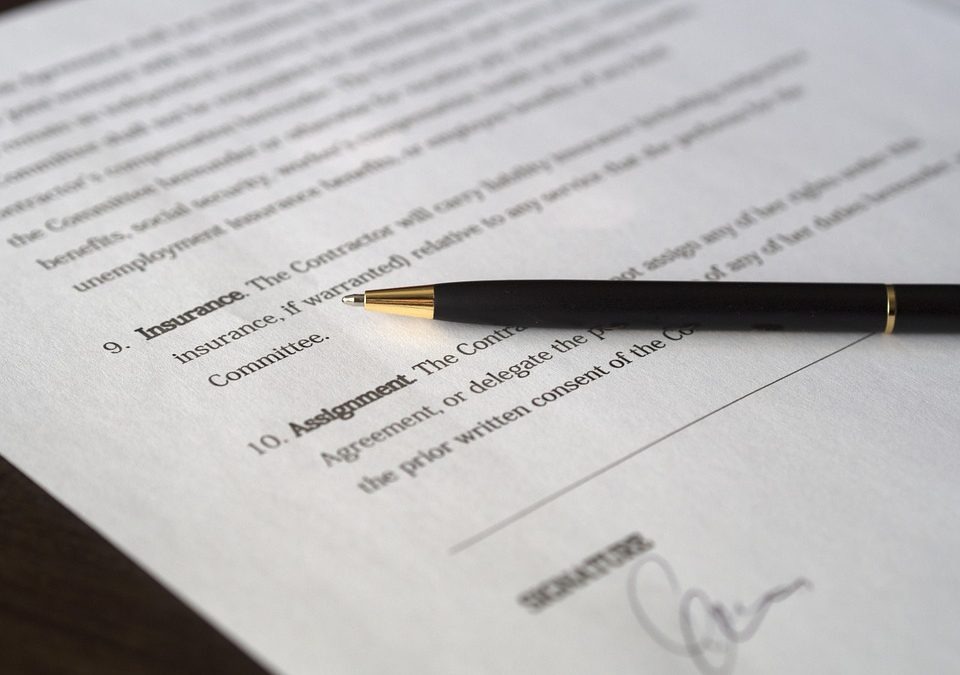
At Morgan + English Commercial Lawyers, we often see the tricky back end of poorly written contracts. Poorly written Terms and Conditions will often lead to disputes. Many of the disputed issues could have been easily avoided with properly drafted contracts.
Here is a summary of some of the main points that we have seen create less than ideal results. Starting with a simple one……
Failing to correctly identify who you are contracting with
Individuals, partnerships, companies and trusts may all be parties to a contract. However, there needs to be an identification of that structure you are contracting with at the start point.
Using companies as the most asked about example, the Australian Company Number (ACN) is often omitted from contracts. Under multiple sections of the Corporations Act 2001 (Cth), it is a requirement that the company must set out its legal name and ACN on “negotiable instruments” (i.e. contracts). There are free online searchable facilities that will locate an ACN, so there are few excuses. Failure to get the correct details puts the contract at risk and may render such things as a Personal Property Security Act (PPSA) registration useless.
Further complications arise where trustees of trusts and partnerships are involved, so these need to be thoroughly explored when drafting a contract.
Amending a previous similar contract
There is always a temptation to save money by using another contract as a template. Whether this is one you have used in the past or has been provided by someone else or generated from an online tool, there are issues that often arise.
Only someone who knows your business will be able to ensure that any updates in law are identified and considered and that it is tailored to the specific need. Something as simple as the other party being in a different jurisdiction can create a raft of issues, as can whether or not the wording makes it an “unfair contract” in the eyes of the law.
Engaging M+E to draft a contract at the outset will ensure that you are asked the right questions at the start, saving you in the long run.
Not managing the contract process
Often there is a suggestion by the other party that they draw up the appropriate contracts. If you are doing the deal, you need to control the process and not see it as a cost saving.
Just as we do for our clients, any legal advisor drafting a contract is acting in the best interests of their client. If the other side is in control of the process, you will need to engage legal advice, which will come with costs of reviews, or risk that the contract doesn’t truly reflect what you set out to do.
Drafting onerous clauses
Often contracts that have been drafted can include extremely onerous provisions that would be well outside the reach or scope expected by the other side. There is presumably a hope that the contract is signed without proper legal review, providing a windfall.
Such clauses can often have wide ranging detrimental effects. Not only do they have the potential to cause increased time and cost in negotiating such a clause, there is also the chance it can stall negotiations entirely. In addition, there is also the possibility that it may later be deemed as an “unfair contract”.
Contractual terms not being precise
In order to be contractually binding, the rights and obligations of both parties need to laid out with precision. When drawing up contracts, lawyers become translators as well as advisors. An ability to suitably draft clauses in line with a “lay person” description of the scenario is what makes an excellent commercial lawyer.
Not “seeing the forest for the trees”
Where clients have a wealth of knowledge in their chosen fields, they sometimes are so focused on a particular outcome that they cannot create other competing scenarios to test the contract.
Commercial lawyers provide these scenarios and a major role is to ask the what if? questions and fully play out those scenarios. Not having a legal mind to advise you may leave you open to being blind-sided when an unforeseen complication arises out of a contract that you willingly entered in to.
Agreeing to agree and other non-enforceable clauses
A general rule is that a clause in a contract that contains an ‘agreement to agree’ is not enforceable. Although there have been rare exceptions, such wording has been seen as unacceptable to the courts. A commercial lawyer is well aware of what you can and cannot include, saving you from a position where you would be incorrectly at ease.
Conclusions
The negotiation and drafting of contracts range in complexity, however getting the legal basics right ensure that the rights and obligations you seek are accurately enshrined in your document and are enforceable should the need arise.
The way to avoid these pitfalls is to engage experienced commercial lawyers like Morgan + English. The knowledge and expertise are one phone call away.


